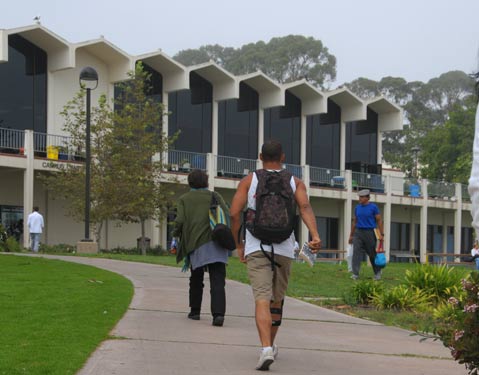Changes Brew for City College Adult Ed
Board of Trustees Set to Vote on Major Reorganization September 27

City College President Lori Gaskin has spent the last week meeting with different constituent groups on campus to discuss upcoming changes to the Continuing Education Division which houses a vast array of noncredit courses. And while it’s hard to know exactly how the new look of the division will shake out, the reality of transition is starting to set in.
Here’s what we do know. It all started in March when the board revoked a two-year contract renewal for three Continuing Education administrators and instead voted to only give them one more year. When they leave, the positions of some, possibly much, of their support staff will be eliminated as well, leaving in their wake two leaner, meaner entities.
Because the state is no longer funding “non-enhanced” courses — often referred to as personal enrichment courses but also including classes like health for seniors — they are being converted to a fee-based system. They will be figuratively housed in an entity called the Center for Lifelong Learning (CLL) supported completely by fees and private donations. The silver lining is that, unlike state support, such funding comes without bureaucratic strings attached, and, in a best-case scenario, the CLL will broaden its offerings and design innovative new programs. An executive director for the CLL could be hired as early as this fall.
The other courses — such as ESL, workforce training, and GED classes — will be integrated into the main campus’s administration. Among many other tasks, the administrative work of running a college division includes programming the schedule, verifying teacher qualifications, maintaining state compliance for every course, and updating agreements with and liability insurance for offsite locations.
Which employees stay and which go are subject to collective bargaining agreements, final decisions by college leaders, and the will of the Board of Trustees who will discuss the reorganization of adult education at a September 13 study session and vote on changes at the September 27 meeting. Nothing is set in stone, but fateful choices are just around the corner.
Trustee Marty Blum said that she hopes as many of the laid-off employees as possible can be moved to vacant positions at SBCC. And President Gaskin has expressed the desire to aid laid off staff with job transitioning support. But the board majority, which favors trimming administrative personnel, cannot overlook the fact that Continuing Ed’s staff size has remained constant while enrollment and course offerings have declined over the past four years. “We’ve eliminated all of the low-hanging fruit and most of the branches that hold them,” said Board President Peter Haslund.



